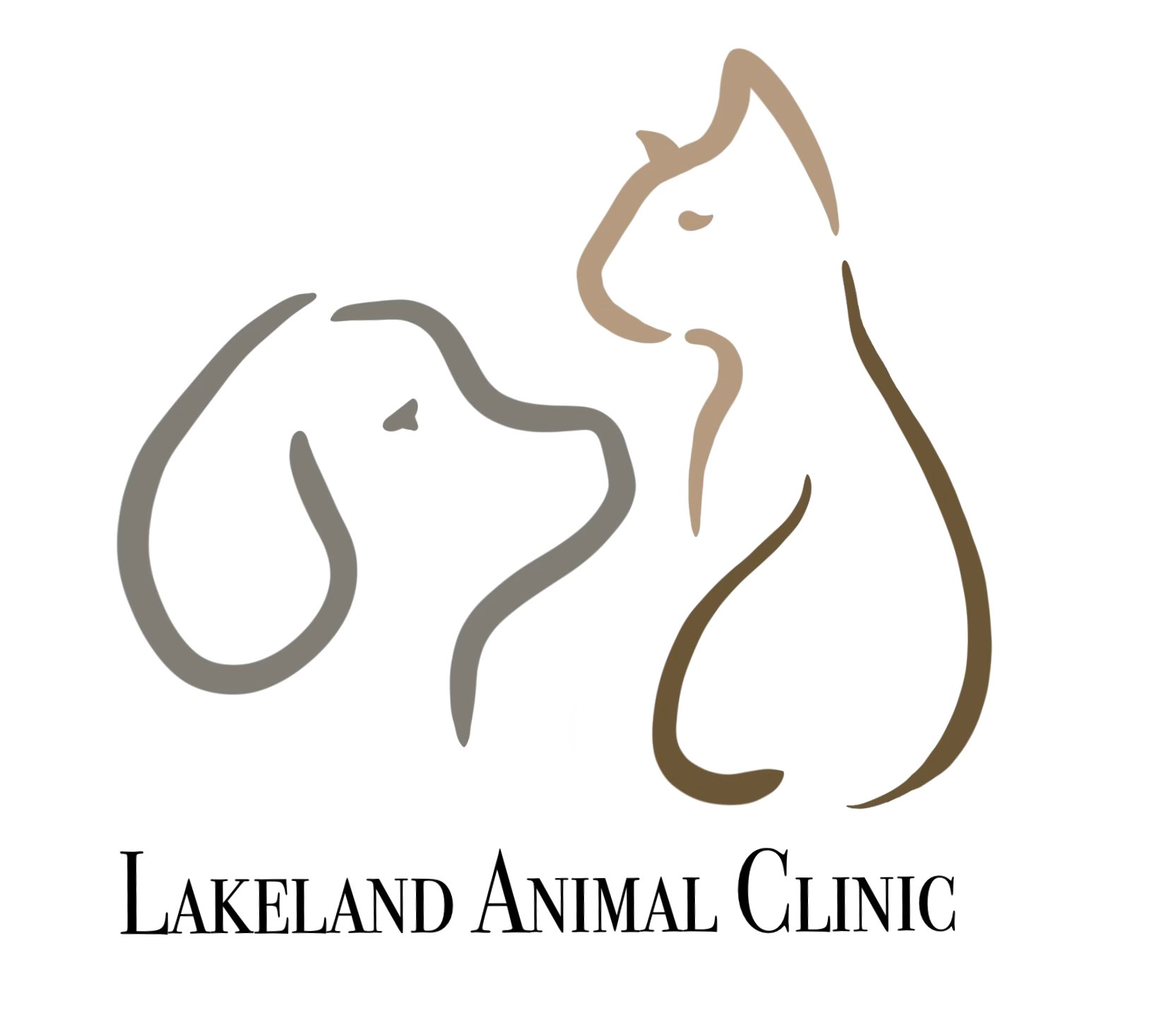How to Identify Digestive Issues in Pets: Signs to Watch For


How to Identify Digestive Issues in Pets: Signs to Watch For
If you have ever noticed your dog or cat experiencing an upset stomach, you know how concerning digestive issues in pets can be. Whether it is an episode of sudden vomiting, ongoing diarrhea, or a change in appetite, gastrointestinal problems can disrupt your pet’s comfort and leave you feeling anxious about their wellbeing. At Lakeland Animal Clinic and Urgent Care, located right in Euclid, OH, our veterinary team understands how distressing these issues can be for families in Euclid and surrounding communities. This guide will help you recognize the most common signs of digestive upset, understand what might be causing your pet’s symptoms, and know when it is time to schedule an appointment for professional veterinary diagnostics in Euclid.
In the following sections, we will walk you through the key symptoms of digestive upset in dogs and cats, discuss the potential causes of pet vomiting and diarrhea, explore how our team at Lakeland Animal Clinic and Urgent Care approaches diagnostics and treatment, and share proactive steps you can take at home. Because digestive disturbances are such a frequent reason for veterinary visits, our compassionate team is always here to answer your questions and provide wellness and diagnostic examinations for pets to get to the root of your pet’s discomfort. If you are searching for a "vet near me" who can offer comprehensive care, you will find the expertise and support you need right here in Euclid.
Recognizing Digestive Issues in Pets: What Symptoms Should Concern You?
Digestive issues in pets can present in many different ways, from subtle changes in appetite to dramatic episodes of vomiting or diarrhea. Being able to spot the early warning signs of gastrointestinal trouble can help you intervene quickly and ensure your pet receives the care they need.
Common Symptoms of Digestive Problems
Key symptoms of digestive upset include vomiting, diarrhea, constipation, or straining to defecate. Additionally, you might notice your pet experiencing flatulence, bloating, or a hunched posture that suggests abdominal discomfort. Other warning signs are loss of appetite, sudden weight loss, or increased thirst and urination. Sometimes, pets with digestive issues may drool more than usual or show signs of dehydration, such as dry gums or lethargy.
For instance, a dog that vomits once after eating grass may simply have a mild stomach upset, while repeated vomiting or ongoing diarrhea over several hours can signal a more serious problem. Cats are often more subtle; a decrease in grooming, hiding, or changes in litter box habits can indicate gastrointestinal distress.
When to Be Especially Concerned
Persistent pet vomiting and diarrhea, especially when accompanied by blood, abdominal pain, or a dramatic drop in energy, should prompt immediate attention. Puppies, kittens, seniors, and pets with chronic health issues are at greater risk for complications from dehydration or infection. If you notice your pet repeatedly vomiting, having liquid or bloody stools, refusing food for more than a day, or acting weak, it is time to call your veterinarian for a comprehensive pet exam in Euclid. You can also use our Pet Health Checker tool for assessing your pet’s symptoms if you are unsure whether your pet’s signs warrant an urgent visit.
What Causes Digestive Upset in Pets?
Understanding the root causes of digestive issues in pets can help you make informed decisions about their care and lifestyle. Many factors can disrupt your pet’s gastrointestinal system, some of which are mild and temporary, while others may be more serious.
Dietary Indiscretion and Sudden Diet Changes
One of the most common causes of pet vomiting and diarrhea in Euclid is dietary indiscretion, which means your pet has eaten something they shouldn’t have, such as garbage, table scraps, or a new treat. Sudden changes in diet, especially when switching foods abruptly, can also upset the balance of gut bacteria and lead to loose stools or vomiting.
Infectious Diseases and Parasites
Bacterial infections, viruses like parvovirus or panleukopenia, and intestinal parasites such as roundworms or giardia can all cause significant digestive upset. These conditions are more prevalent in young pets, recently adopted animals, or those with incomplete vaccination histories. Seasonal changes in Euclid can also impact parasite exposure, especially during warmer months when pets spend more time outdoors.
Food Allergies, Chronic Disease, and Stress
Some pets develop food sensitivities or allergies, resulting in chronic digestive issues. Additionally, underlying health problems such as kidney disease, liver disorders, pancreatitis, or inflammatory bowel disease can cause ongoing gastrointestinal symptoms. Stressful events like moving homes, boarding, or changes in the household can trigger digestive upset, particularly in sensitive cats.
Toxins, Foreign Bodies, and Medications
Pets can become ill after ingesting toxins such as chocolate, certain plants, or household chemicals. Swallowing foreign objects like toys, bones, or string can lead to blockages, which are emergencies requiring prompt veterinary intervention. Certain medications, especially if given on an empty stomach or at inappropriate doses, can also cause gastrointestinal irritation.
How Digestive Issues in Pets Are Diagnosed and Treated at Lakeland Animal Clinic and Urgent Care
When your pet experiences persistent digestive symptoms, seeking veterinary diagnostics in Euclid is essential for an accurate diagnosis and effective treatment. At Lakeland Animal Clinic and Urgent Care, our approach combines advanced technology with personalized care to ensure the best outcome for your pet.
Diagnostic Steps and Laboratory Testing
Our veterinary team will start with a thorough history and physical examination. We ask about the onset, frequency, and nature of your pet’s symptoms, recent dietary changes, and possible exposure to toxins or infectious agents. Diagnostic tests may include bloodwork, fecal analysis, and urinalysis to screen for infection, dehydration, or organ dysfunction. In some cases, we recommend imaging such as digital radiology or ultrasound to identify blockages or internal inflammation.
If your pet is a senior or has ongoing digestive complaints, our diagnostic laboratory services for pets offer fast, accurate results to guide your pet’s treatment plan. Our in-house lab means we can get answers quickly, which is especially important for pets that are acutely ill.
Treatment Approaches and Management
Treatment of digestive issues in pets at our clinic depends on the underlying cause. Management often involves supportive care such as fluids to address dehydration, anti-nausea or anti-diarrheal medications when appropriate, and dietary modifications to rest the digestive tract. If parasites are detected, we prescribe targeted dewormers. Bacterial infections may require antibiotics, while food allergies or inflammatory conditions are managed through specialized diets and, in some cases, immunosuppressive medications.
For pets with foreign body ingestion or intestinal blockages, surgery may be necessary. Our veterinary professionals are skilled in soft tissue surgery, providing a seamless continuum of care from diagnosis to recovery. In all cases, we closely monitor your pet’s progress and offer compassionate follow-up to ensure a smooth return to health.
Preventing Digestive Issues in Pets: Practical Steps for Pet Owners
While some causes of digestive upset are unavoidable, there are many steps you can take at home to reduce your pet’s risk and support their gastrointestinal health. Prevention is especially important for maintaining wellness in pets living in Euclid and surrounding communities, where seasonal changes, dietary trends, and household routines can all impact digestive health.
Diet and Feeding Habits
Consistently feeding a high-quality, age-appropriate diet is essential. Avoid making sudden changes to your pet’s food; instead, introduce new foods gradually over a period of a week or more. Keep your pet away from table scraps, garbage, and unfamiliar treats, as these are common triggers for pet vomiting and diarrhea in Euclid.
Regular Wellness Examinations
Scheduling annual or semi-annual wellness examinations allows your veterinarian to detect early signs of chronic digestive diseases, food sensitivities, or parasite infestations. Routine fecal testing and deworming protocols can prevent many common gastrointestinal problems. If you are ever in doubt about your pet’s risk, a wellness and diagnostic examination for pets provides a proactive way to catch issues before they become serious.
Environmental Safety and Stress Reduction
Pet-proof your home by keeping toxic substances, plants, and small objects out of reach. Minimize stress by providing a predictable routine and safe spaces for your pets, especially during major life changes. For those who board their pets or travel frequently, discuss preventive care with your veterinarian to reduce the risk of stress-induced digestive upset.
Monitoring and Early Intervention
Pay attention to any changes in your pet’s eating, drinking, or bathroom habits. Prompt action at the first sign of digestive upset can prevent complications and speed recovery. If you ever have concerns, our veterinary team is just a phone call away and can provide guidance tailored to your pet’s unique needs.
When Should You Seek Veterinary Care for Digestive Issues in Pets?
Digestive issues in pets can range from mild, self-limiting episodes to severe, life-threatening emergencies. Knowing when to seek professional help is key to protecting your pet’s health and wellbeing.
Signs That Require Immediate Veterinary Attention
You should contact your veterinarian right away if your pet experiences repeated vomiting or diarrhea lasting more than 24 hours, especially if there is blood present. Other warning signs include refusal to eat or drink, signs of pain (such as whining, restlessness, or a hunched posture), distended abdomen, or sudden lethargy. Puppies, kittens, senior pets, and those with pre-existing health conditions are at greater risk for rapid dehydration and complications.
If you are ever unsure whether your pet’s symptoms require urgent attention, our Pet Health Checker tool for assessing your pet’s symptoms can help you assess the situation. However, please remember that this tool cannot replace a hands-on examination by our veterinary professionals.
Why Professional Veterinary Diagnostics in Euclid Matter
Digestive symptoms can have many different causes, and some may require advanced diagnostics or even surgical intervention. Our team at Lakeland Animal Clinic and Urgent Care is equipped to provide comprehensive pet diagnostics in Euclid, ensuring that your pet receives an accurate diagnosis and the right treatment plan. Relying on online information or home remedies can delay proper care and may put your pet at risk.
If you are searching for quality veterinary services near me, choosing a local clinic with full diagnostic capabilities means your pet can receive prompt, coordinated care without the stress of multiple referrals.
Compassionate Support for Digestive Issues in Pets at Lakeland Animal Clinic and Urgent Care
Digestive problems in pets can be distressing for both pets and their families, but with the right support, most pets recover quickly and return to their happy selves. At Lakeland Animal Clinic and Urgent Care, our veterinarians in Euclid, OH are dedicated to providing comprehensive, compassionate care—whether your pet is experiencing sudden digestive upset or has ongoing gastrointestinal issues. We encourage you to schedule an appointment for a wellness and diagnostic examination if you notice any concerning signs, or if you simply want peace of mind about your pet’s health.
If you are looking for a "vet near me" who offers thorough veterinary diagnostics in Euclid and personalized care for every stage of your pet’s life, our team is here to help. Call us today at (216) 731-5536 to schedule your visit or use our Pet Health Checker tool for assessing your pet’s symptoms for guidance on your next steps. Your pet’s comfort, health, and happiness are at the heart of everything we do at Lakeland Animal Clinic and Urgent Care.
This blog is intended for educational purposes only and should not be used as a substitute for professional veterinary advice. If your pet is experiencing severe or persistent symptoms, please contact our veterinary team promptly for a complete evaluation.



















